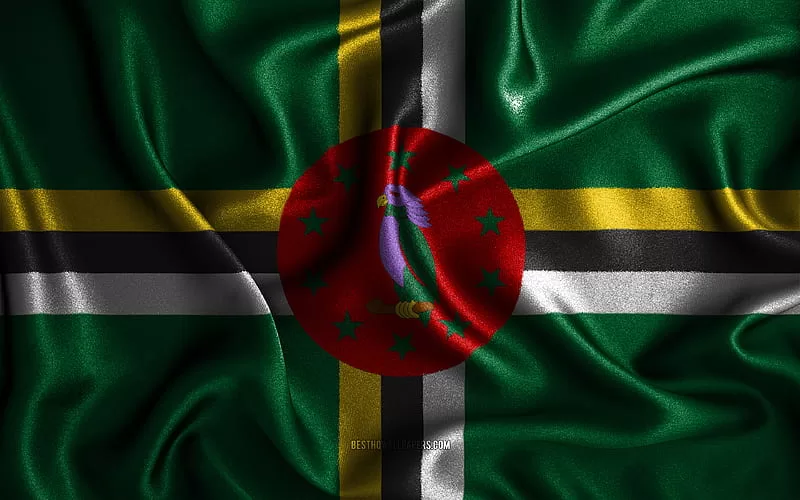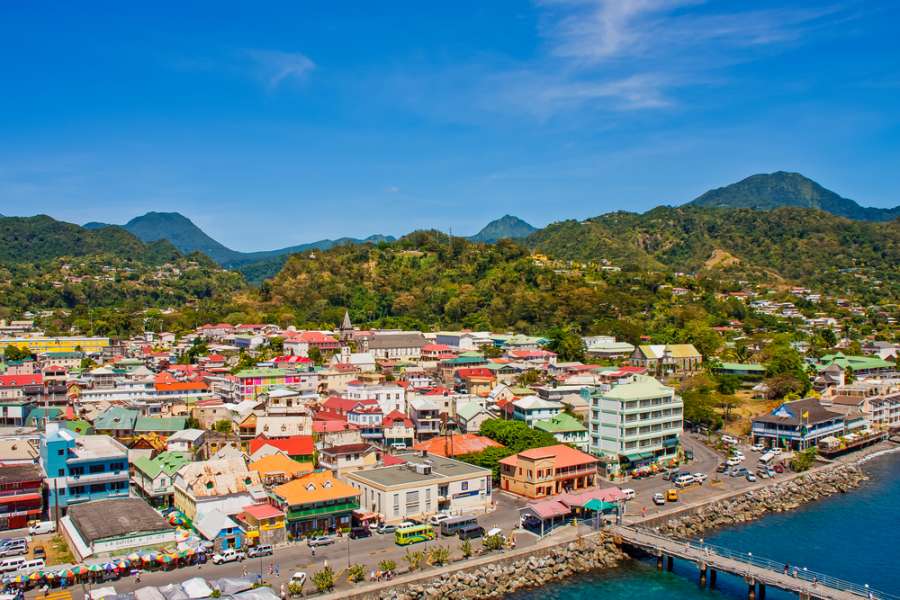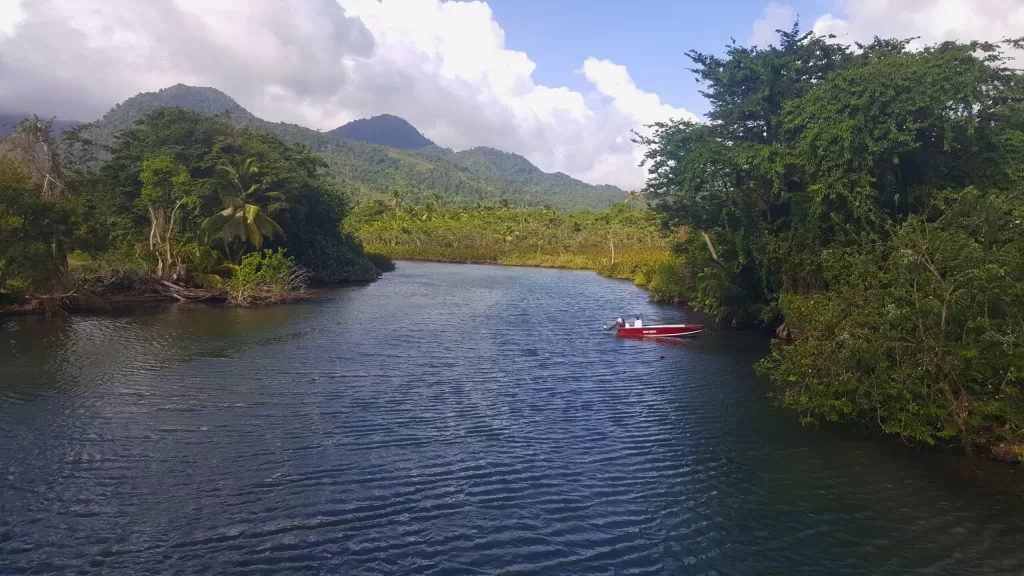Dominica Country Report

Dominica, also known as the “Nature Isle of the Caribbean,” is a beautiful island country located in the Eastern Caribbean Sea. It is known for its lush rainforests, stunning waterfalls, and volcanic landscapes. Dominica is home to several natural attractions, including Morne Trois Pitons National Park, a UNESCO World Heritage site. The park features the Boiling Lake, the second-largest hot spring in the world, and the Trafalgar Falls, which are breathtaking twin waterfalls. The island also offers incredible diving and snorkeling opportunities, with vibrant coral reefs and marine life. You can explore the Champagne Reef, known for its underwater volcanic vents, or visit Scotts Head, a popular spot for diving and fishing.
In terms of culture, Dominica has a rich heritage influenced by African, French, and Indigenous Kalinago traditions. The island hosts various festivals throughout the year, such as the World Creole Music Festival and the Carnival celebrations, where you can experience the vibrant music, dance, and cuisine of the region. Dominica is committed to sustainable development and ecotourism. The country has implemented initiatives to protect its natural resources and promote renewable energy sources. It’s truly a paradise for nature lovers and adventure seekers.
Last updated: April 8, 2022
Security
Dominica is generally considered a safe destination for travelers. However, like any other place, it’s important to be aware of potential risks and take necessary precautions to ensure your safety. One of the main risks in Dominica is petty theft, particularly in tourist areas. It’s advisable to keep an eye on your belongings and avoid displaying valuable items. Be cautious when using ATMs and avoid walking alone in secluded areas, especially at night.
Another consideration is the possibility of natural disasters, as Dominica is located in a hurricane-prone region. During hurricane season (June to November), it’s important to stay informed about weather conditions and follow any instructions or warnings issued by local authorities. Additionally, it’s always a good idea to have travel insurance that covers medical emergencies and evacuation, as healthcare facilities on the island may be limited in some areas.
Last updated: May 18, 2022
Infrastructure

Dominica’s infrastructure consists of a network of roads, bridges, and ports that connect different parts of the island. While the road network is not as extensive as in some other countries, it allows for travel to various towns and villages. It’s worth noting that some roads in Dominica can be narrow, winding, and steep due to the island’s mountainous terrain. The main port of Dominica is the Roseau Cruise Ship Berth, which welcomes cruise ships from around the world. There are also smaller ports, such as Portsmouth, which serve as hubs for inter-island ferry services.
In recent years, efforts have been made to improve and modernize Dominica’s infrastructure. For example, the construction of the new Douglas-Charles Airport terminal has enhanced air travel facilities. The government has also been investing in renewable energy projects to improve the island’s energy infrastructure.
Last updated: April 20, 2021
Environment

Dominica is known for its stunning natural environment and diverse landscapes. The island is often referred to as the “Nature Isle of the Caribbean” due to its lush rainforests, pristine rivers, and beautiful waterfalls. Dominica is home to several national parks and protected areas, such as Morne Trois Pitons National Park, which is a UNESCO World Heritage Site. These parks offer opportunities for hiking, birdwatching, and exploring the island’s unique flora and fauna.
If you’re into outdoor activities, you’ll love the cycling and hiking trails in Dominica. The Waitukubuli National Trail is a 115-mile long trail that spans the entire island, showcasing its natural beauty along the way. Environmental initiatives are also an important focus in Dominica. The country is committed to sustainable development and has made significant strides in renewable energy production. Dominica aims to become the world’s first climate-resilient nation, with a focus on geothermal and solar energy projects.
Last updated: March 14, 2022
Health and Medical
In Dominica, the healthcare system is generally adequate to meet the needs of residents and visitors. The country has a mix of public and private healthcare facilities, including hospitals, clinics, and medical centers. The main hospital in Dominica is the Princess Margaret Hospital, located in Roseau. It provides a range of medical services, including emergency care, surgeries, and specialized treatments. There are also smaller health centers and clinics scattered across the island, offering primary care services. It’s always a good idea to have travel insurance that covers medical emergencies when visiting Dominica, as healthcare services may have limitations in some areas. It’s also important to check if your insurance covers any pre-existing conditions or specific medical needs.
As for diseases, like any other destination, there are some health risks to be aware of in Dominica. Mosquito-borne diseases such as dengue fever and chikungunya can occur, so it’s advisable to take precautions against mosquito bites by using repellents and wearing protective clothing.
Last updated: September 6, 2022
Political
. The country has a system of government where the Prime Minister is the head of government and the President is the head of state. The government is elected through general elections, and there are multiple political parties in Dominica, including the Dominica Labour Party and the United Workers’ Party. Recently, there have been some developments in the political landscape of Dominica, including debates and discussions on various issues such as electoral reforms and constitutional changes.
Last updated: March 18, 2022















